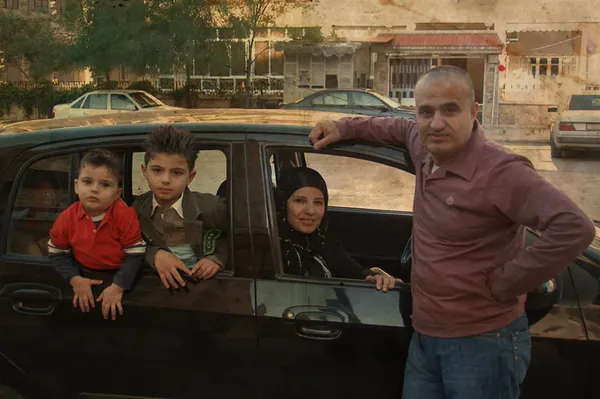Eye For Film >> Movies >> Reunited (2020) Film Review
Reunited
Reviewed by: Amber Wilkinson

Mira Jargil's previous feature, Dreaming Of A Family, documented a recovering alcoholic dad trying to reconcile with his family. This time around there's another family in pieces - but they are victims of external rather than internal conflict. The Faras clan are just one of the millions of Syrian families who have had their lives turned upside down by the ongoing fighting in their homeland - but as so many documentaries testify, leaving Syria is, for many, just the first of the hurdles they have to face. When we meet the family, dad Mukhles - who used to be a doctor for the Syrian football team - has already fled to Canada where he is trying to attain citizenship.
Mum Rana, meanwhile, fled for Denmark - we see her being fished from a boat near the start of the film, visibly upset because it is the "first time I've been apart from my family". She believed, wrongly as we will soon learn, that it would only be a matter of a few months before she would be able to bring her sons Nidal, 17, and 11-year-old Jad to live with her. Instead, the kids find themselves stranded in Turkey while their mum, who is also a doctor, tries to navigate the bureaucracy so they can be together again.
"Maybe you can keep going for a couple more years but we can't," one of her sons tells her in one of the many heartrending video calls Jargil captures. In others, Rana and Mukhles talk about their fears for the future and their struggles to deal with the way their sons are changing as they grow older. The intricacies of the various bureaucracies are laid bare as both Mukhles and Rana file document after document in the hopes of being reunited as a family. Given that both parents are fully trained doctors you may well also ask yourself, if they are finding it this hard, what on earth happens to those refugees who are lower skilled?
But Jargil's film isn't just an indictment of immigration system webs that forget real human lives are caught within them, it is also an exploration of what happens to families under these conditions. The regular contours of life are visible, the way that a mum can embarrass a kid or a dad can check up on homework - but there's also a sense of trauma. Rana realises her elder son may harbour anger about her leaving him and Jad that he finds himself unable to express, while Mukhles struggles to even look at recent photos of his sons, preferring the ones from the happier past. Jargil gives all the stories room to breathe and though the weight of emotion rests with the building tension over Rana's struggle to get her sons to Denmark, the experiences of the other members of the family are also explored. Although the main focus here is the immigration system in Jargil's homeland of Denmark, it's clear to see the system is increasingly stacked against refugees, no matter where they are trying to seek safe haven.
Reviewed on: 22 Jun 2020















